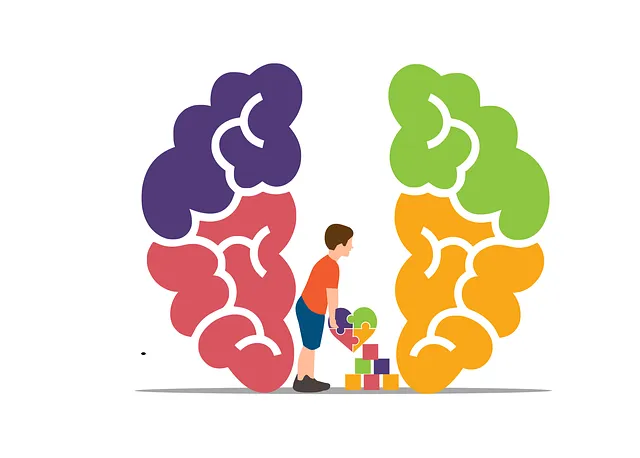Kaiser Permanente's comprehensive training programs in Golden offer vital tools for healthcare providers to combat stress and burnout. These programs include Burnout Prevention Strategies, Self-Awareness Exercises, and Mindfulness Meditation, empowering staff with effective stress management skills. Through engaging workshops, participants gain practical techniques, emotional support, and increased self-esteem, fostering a healthier work environment and improving overall well-being. Tailored content, dynamic activities, and supportive communities enhance learning outcomes, making these training programs a game-changer for stress relief in Golden's healthcare sector.
Stress management workshops are an effective tool for improving employee well-being and productivity. This article explores the comprehensive guide to organizing such workshops, focusing on Kaiser Permanente’s approach. We’ll delve into understanding stress, its causes and effects, and highlight the transformative power of interactive sessions. Learn how to design engaging Kaiser Permanente training programs, follow golden rules for facilitation, and measure the success of these workshops to create a healthier, more resilient workforce.
- Understanding Stress: Unveiling Common Causes and Effects
- The Role of Workshops in Effective Stress Management
- Designing Engaging and Interactive Kaiser Permanente Training Programs
- Golden Rules for Facilitating Stress Relief Sessions
- Measuring Success: Evaluating the Impact of Stress Management Workshops
Understanding Stress: Unveiling Common Causes and Effects

Stress is a pervasive aspect of modern life, impacting individuals across various sectors, especially those in healthcare. Recognizing and understanding stress is the first step towards effective management. Common stressors often stem from demanding work environments, heavy workloads, long hours, and the constant need to deliver high-quality care. These factors contribute to what is colloquially referred to as burnout, a state of emotional, physical, and mental exhaustion.
At Kaiser Permanente, training programs emphasize the critical role of stress management in healthcare providers’ well-being. Initiatives like Burnout Prevention Strategies for Healthcare Providers, Self-Awareness Exercises, and Mindfulness Meditation are integral parts of their wellness curriculum. These strategies aim to equip professionals with tools to identify and mitigate stress, fostering a healthier and more sustainable work environment.
The Role of Workshops in Effective Stress Management

Stress management workshops play a pivotal role in empowering individuals to take control of their mental well-being, especially in today’s fast-paced and demanding world. These interactive sessions, such as those offered by Kaiser Permanente training programs, serve as valuable tools for educating and supporting people in developing effective strategies to cope with stress. Through engaging activities and discussions, participants learn self-care practices that cater to both the mind and body, fostering a sense of balance and resilience.
The workshops delve into essential aspects like Mind Over Matter principles, teaching individuals how to reframe their mindset and cultivate positive thinking patterns. Additionally, they explore techniques for improving self-esteem, which is crucial for building confidence in managing stress and making healthier choices. By combining practical knowledge and emotional support, these sessions enable attendees to not only navigate the challenges of daily life but also to thrive amidst stress, ultimately leading to improved overall well-being.
Designing Engaging and Interactive Kaiser Permanente Training Programs

Designing engaging and interactive Kaiser Permanente training programs is an art that combines effective pedagogy with a deep understanding of human behavior. To create compelling workshops in Golden, facilitators must go beyond simple lecture formats and incorporate dynamic activities that cater to diverse learning styles. One proven approach is integrating practical exercises like role-playing scenarios for crisis intervention guidance, enabling participants to apply emotional regulation techniques and conflict resolution techniques in real-world contexts. By fostering a safe environment for practice and reflection, these programs empower individuals to handle stressful situations with confidence and resilience.
Interactive elements such as group discussions, case studies, and interactive multimedia can significantly enhance learning outcomes. Tailoring content to address specific challenges faced by Kaiser Permanente staff ensures relevance and immediate applicability. Moreover, incorporating storytelling and personal anecdotes can humanize the training, making complex concepts more accessible and memorable. Ultimately, well-designed programs not only equip participants with valuable skills but also foster a sense of community, solidifying the learning experience for long-term retention and application.
Golden Rules for Facilitating Stress Relief Sessions

Effective stress relief sessions require a structured approach and adherence to certain golden rules. One of the key principles is creating a safe and supportive environment where participants feel comfortable sharing their experiences. Facilitators should promote active listening, ensuring every individual’s concerns are acknowledged and validated. This fosters open communication and encourages personal reflections on stress triggers and coping mechanisms.
Additionally, incorporating interactive activities, such as group discussions or mindfulness exercises, can enhance engagement and learning. The Kaiser Permanente training programs emphasize these techniques, focusing not only on Depression Prevention but also on Mental Wellness Coaching Programs Development. By combining theoretical knowledge with practical tools, facilitators enable participants to develop personalized strategies for managing stress and reducing the impact of mental illness stigma reduction efforts.
Measuring Success: Evaluating the Impact of Stress Management Workshops

Measuring the success of stress management workshops is paramount to understanding their true impact and value. It’s not enough to simply conduct these programs; organizations like Kaiser Permanente, known for its comprehensive training programs, must assess whether participants are benefiting from the sessions. This evaluation involves gauging changes in self-reported stress levels, mental health, and overall well-being before and after the workshops. By collecting feedback through surveys or interviews, facilitators can uncover valuable insights into what’s working and where improvements can be made.
The effectiveness of these programs can be further enhanced by incorporating practices like Self-Awareness Exercises and Mindfulness Meditation, which cultivate present-moment awareness and emotional regulation. Similarly, adhering to Mind Over Matter Principles helps participants develop coping strategies that promote resilience in the face of stress. By integrating these techniques into the workshop curriculum and measuring their influence on participant outcomes, organizations can ensure that their stress management efforts are not just superficial but genuinely transformative.
Stress management workshops, particularly those tailored for organizations like Kaiser Permanente, prove invaluable in fostering employee well-being and productivity. By understanding stress’s causes and effects, workshop facilitators can design engaging Kaiser Permanente training programs that empower individuals with effective coping strategies. Adhering to golden rules for facilitating these sessions ensures a positive impact, allowing participants to navigate workplace challenges with enhanced resilience. Measuring the success of these workshops through proper evaluation is crucial to demonstrate their effectiveness and make informed adjustments for continuous improvement in stress management initiatives.




